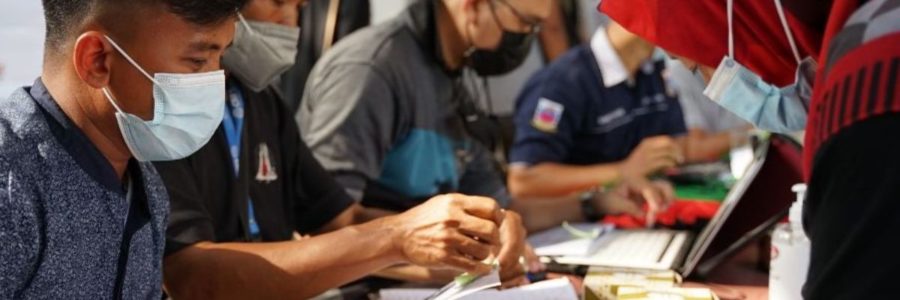Prof Yik-Ying Teo, Dean of the Saw Swee Hock School of Public Health, shares his recommendations on how philanthropists can help improve public health systems capabilities in Indonesia and beyond.
BY XIANG MIN LIM
Every year, APC gathers members from Indonesia to catch up on each other’s work, and to explore potential avenues to collaborate on common issues of concern affecting the country. One year ago, members met to discuss reprioritising philanthropy areas due to COVID-19—this year, everyone convened to share the results of their work in 2021, and their upcoming plans.
APC also kicked things off and invited Prof Yik-Ying Teo, Dean of the Saw Swee Hock School of Public Health at the National University of Singapore to examine philanthropic interventions towards improving Indonesia’s public health capabilities, as many of APC’s Indonesia members have philanthropic interest in healthcare.
In an overview on the state of health across Indonesia, Prof Teo describes the rise of non-communicable diseases and chronic conditions such as diabetes and high blood pressure across Indonesia, owing to ageing populations and changing lifestyles. Such conditions put additional burden on the healthcare system and can impact productivity and human potential in the long term. However, he stressed that majority of underlying causes and risk factors behind such diseases are preventable, and are “low-hanging fruit” that can be addressed through the improvement of primary health care delivery and health education.
Prof. Teo also presented three recommendations that philanthropists can help address towards improving healthcare system and delivery of services across Indonesia:
- Developing talent via postgrad scholarships in public healthcare, executive leadership programmes for policymakers and political leaders to better understand national development priorities.
- Strengthening infrastructure for partnerships, healthcare service delivery and institutions. Screening and treatment capabilities require investment in infrastructure.
- Developing capability in deciding resource allocation. There will always be competing demands and being able to assess and prioritise resources is critical at the national, regional, and provincial level.
Digging deeper into improving capabilities in resource allocation, Prof. Teo shared how SSH SPH used medical modelling as a tool to help the Singapore government make important decisions during COVID-19. Such decisions about hospital resources and school reopening are informed by modelling the number of cases and required healthcare resources. Modelling helps project future costs and is informed by existing and past data. SSH SPH has also shared this expertise regionally through their offices in Cambodia and Laos.
Members also shared the highlights of their impact work in 2021. COVID relief efforts continue as a common focus from the previous year, spanning collaborations from delivering oxygen concentrators, to community-wide food distribution and mask production. Members also focused heavily on sustainability, such as initiatives addressing organic waste management, wildlife conservation, and sustainability advocacy and education.
This consistent sharing allows members to keep afloat of each other’s projects and find potential overlaps for collaboration. APC hopes to continue bringing members and organisations together to grow impact!
Image Credit: © USAID, 2021. Indonesia COVID 19 Vaccine Data Collection

